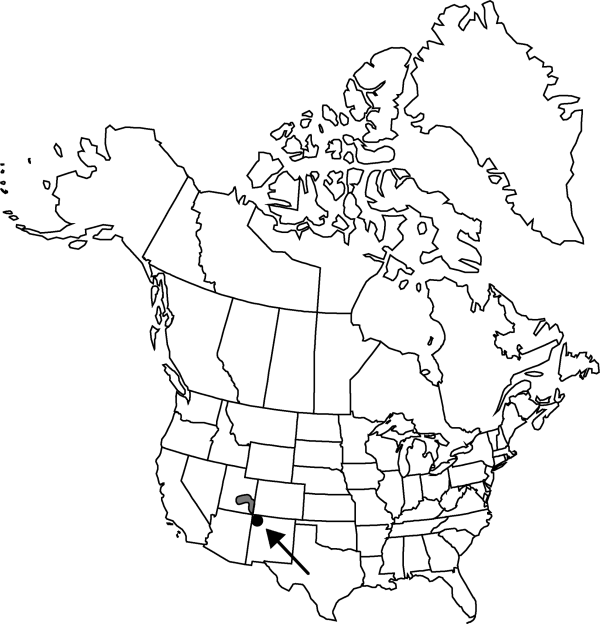Atriplex saccaria var. cornuta
Rhodora 102: 420. 2001.
Herbs, annual, rather low, sprawling, mainly 1.5–3 dm and as broad or broader. Stems terete or angled. Leaves: petiole mainly 1–3 cm, gradually shortened distally; blade rhombic to deltoid or ovate, 10–25 mm and as broad or broader, base broadly to narrowly cuneate, apex acute to rounded. Staminate flowers in small sessile glomerules axillary in distalmost bracteate leaves. Fruiting bracteoles dimorphic, those on stipes (2–)4–15 mm or longer, with surfaces covered with flattened processes, sessile one cuneate as in type variety.
Phenology: Flowering late summer–fall.
Habitat: Salt desert shrub communities, on fine-textured saline substrates of Morrison and Mancos Shale formations
Elevation: 1400-1500 m
Discussion
Atriplex saccaria var. cornuta is a Colorado Plateau endemic.
The rhombic to deltoid or flabellate, broadly cuneate leaves of this variety bear a superficial resemblance to those of Atriplex argentea, especially portions of var. rydbergii, possibly resulting in Jones’ subsequent placement of the taxon. Some specimens appear to grade with the partially sympatric and highly variable var. saccaria, especially with the phase that has passed under the name A. caput-medusae.
Selected References
None.
